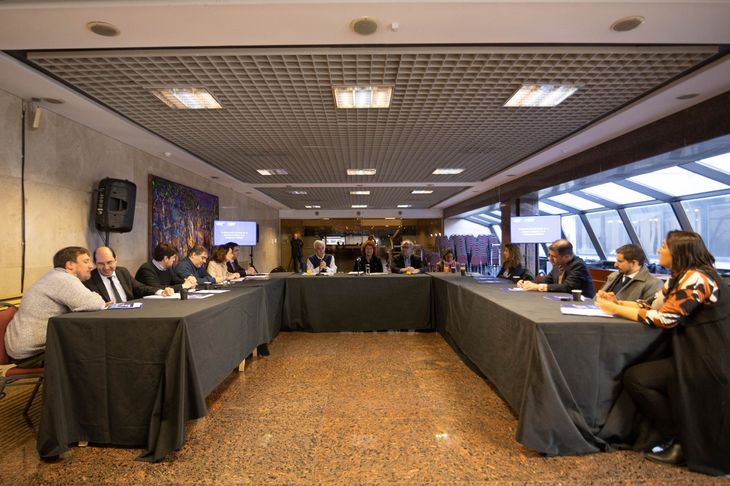From September 25 to 27, the Parliament of Uruguay will host the Second World Summit of Future Commissionsan international meeting with a topic that its name suggests but that is especially delicate and complex: the future.
For that they will come to Montevideo experts from around the world who, together with parliamentarians interested in the issue, will analyze challenging issues such as the use of Artificial intelligence with its risks and benefits for democracies. This Friday a presentation of the meeting was held, in which Ambit.
The technical advisor of the Future Commission and consultant Idea, Lydia Garrido, reported that “there is a whole specific area of knowledge that is broadly called Futures Studies. Within the area there is a multiplicity of approaches, approaches, methodologies and techniques.”
The anthropologist considered that some may be known as so-called “scenarios”, which can be built with different types of methodologies and approaches such as, for example, foresight. “Those are systematic and rigorous techniques that ‘use the future’, and I put this use of the future in quotes because the future itself does not exist”, Garrido emphasized.
Regarding the way to analyze it, the scientist mentioned the “high cognitive abilities to imagine possible and desirable futures. It is not something that simply arises spontaneously, but it has its methodologies and techniques to do it.”
“One of the ways is simulations. Generally, this way of using the future is based on past data, Certain behaviors are determined for these variables and analyzes are carried out based on that. By doing it this way, for example, it is understood that what we are doing is projecting based on certain anticipatory assumptions,” explained Lydia Garrido in a didactic tone.
WhatsApp Image 2023-09-15 at 12.02.55 (1).jpeg
“Bringing the future to the present” is the motto of this international technology summit, which the Uruguayan Parliament will host.
To regulate or not to regulate is the question
The specialist considered that given the potential that these technologies have “it becomes imperative” to analyze their regulation. For Garrido the difficulty is that “it is all very new and incipient. There is no backgroundbecause even when the regulation that was made for the use of nuclear energy is considered as an analogous case, there are substantive differences.”
“The type of problem that confronts us is unprecedented and that leads us to the need to use other frameworks to define and address the problem,” said the expert and technical advisor to the commission.
Deputy Rodrigo Goñi, president of the Parliamentary Futures Commission He is a student of the subject and has shown himself inclined to regulate the use of Artificial Intelligence based on international experiences. “He European Parliament It has a first approval of an initiative that underwent a subsequent ratification procedure. But it is a very complete law, which opted for a scheme of the effects of Artificial Intelligence and its risks,” he explained.
“There are Artificial Intelligence systems that generate unacceptable risks, For example, biometric identification in public places or those systems that allow each of the movements of this or that person to be seen instantly. That, for example, is one of the examples that European law establishes as an unacceptable risk.
In that sense, the representative clarified that “what can be done here must have strategies that are in accordance with the ethical principles of human rights. Here the Accountability It has an article that establishes a process to make a regulation that in 180 days must bring together all public actors under the leadership of AGESIC and end in a recommendation to the National Parliament for what would be a first law of Artificial Intelligence in Uruguay”, pointed out the deputy of the National Party.
WhatsApp Image 2023-09-15 at 12.03.00.jpeg

The Future Commission of the Parliament of Uruguay is chaired by the nationalist deputy Rodrigo Goñi.
The commission and the guests
The commission is chaired by Deputy Rodrigo Goñi and is made up of 14 legislators, including deputies and senators from ruling and opposition political parties. In addition to parliamentarians from dozens of countries, technicians from the OAS, the IDB and the European Union, among other organizations, will participate in the meeting.
Source: Ambito




